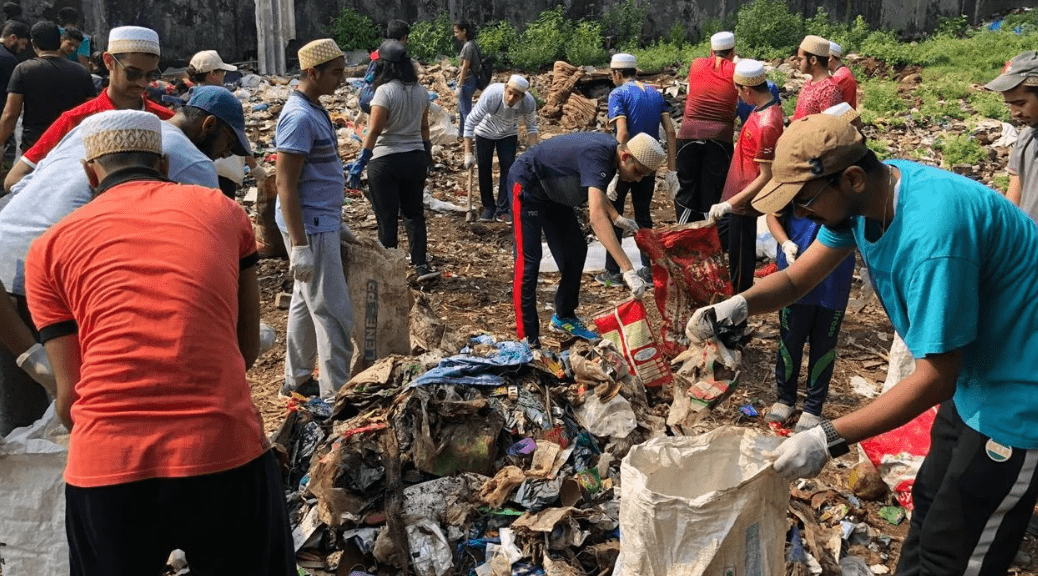Plastic Ban in India: An Overview

In a commendable move, India had banned the use of ‘single-use plastic’ from July 1, 2022. India had banned the manufacture, import, stocking, distribution, sale and use of some well-known single-use plastic items, which have low utility and high littering potential. This policy could bring about significant change in India’s fight in checking plastic pollution.
Pallabi Boruah
The Ministry for Environment, Forest and Climate Change had issued the notification in August 2021 announcing a ban on single-use plastic effective from July 2022. Items like balloon sticks, cigarette packs, cutlery items including plates, cups, glasses, forks, spoons, knives, trays, earbuds, sweet boxes, etc. have been banned.
Single use plastic is a form of disposable plastic used in products like water bottles, straw, cups, etc. It can only be used once and then has to be discarded. Industries and companies are inclined towards producing single use plastics due to their cost-effectiveness. However, trade bodies like the All India Plastic Manufacturers Association (AIPMA) had suggested that the government extend the deadline for phasing out single use plastic products by a period of one year to 2023.
Heavy usage of plastics across the world has caused quite a lot of hazard and peril. Governments and various global regulatory bodies are trying hard to contain and amend it.
Plastic Waste Management Rules
The manufacture, import, stocking, distribution, sale, and use of single use plastic commodities shall be prohibited from July 1, 2022. These products include:
- Ear buds with plastic sticks, plastic sticks for balloons, plastic flags, candy sticks, ice-cream sticks, polystyrene for decoration.
- Plates, cups, glasses, cutlery such as forks, spoons, knives, straw, trays, wrapping or packing films around sweet boxes, invitation cards, and cigarette packets, plastic, or PVC banners less than 100 micron and stirrers.
- The government has issued directives at the national, state, and local levels to not supply raw materials to industries that operate in banned items.
- Additionally, with effect from December 31, 2022, the thickness of plastic carry bags must be increased from 75 microns to 120 microns to allow their re-use.
- There is also a blanket ban already in place on sachets using plastic material for packing, storing, or selling pan masala, gutkha, and tobacco.
India has a per capita plastic consumption of 11 kg compared to the global average of plastic per capita consumption of 28 kg, a report on plastic waste management by the Indian Housing and Urban Affairs Ministry revealed. It has also been found that dumping of plastic waste deteriorates soil and underground water quality due to leaching of additives, colourants, stabilizers and fillers present in the different categories of plastic products.
Rapid economic growth had fuelled demand for goods that come with single-use plastic products, such as straws and disposable cutlery. In India, which uses about 14 million tonnes of plastic annually, has always lacked an organised system for managing plastic waste, which has led to widespread littering. Plastic goods in eventuality chokes drains, rivers and oceans and also kill animals. According to the United Nations, plastic waste is found in alarming proportions in the world’s oceans. There is an estimated 100 million tonnes dumped there. Researchers have found large amounts of micro plastic in the intestines of deep-dwelling ocean mammals like whales.
In a respite to consumers, the government has for now exempted plastic bags but it has asked manufacturers to raise the thickness to encourage reuse and recycle. Hopefully, this ban will encourage people to use more reusable goods and contribute their bit in this fight against plastic pollution.
Consumer VOICE is sensitizing consumers with focus on children & youth, women groups on plastic pollution. We are encouraging consumers to reduce plastic from their daily lives by switching to sustainable alternatives and also encouraging community efforts in this regard.
Various workshops have been conducted and we also use social media channels to post videos, posts using informative graphics, facts, taking support of environment activists, etc.
Our Green Action Week Campaign on Plastic Pollution : https://consumer-voice.org/campaigns/gaw-2021/
Related
Decoding Cyber Coverage in India: Your Ultimate Guide
In today's technology-driven landscape where digitalization is ubiquitous, companies confront an escalating threat landscape in the form of...
Navigating Insurance Options: Comprehensive Coverage for Diabetics in India
As the prevalence of diabetes continues to rise steadily in India, individuals grappling with this chronic condition encounter myriad challenges,...
Understanding International Travel Insurance
International travel insurance serves as a financial product crafted to shield travellers from unforeseen events and expenses while journeying...


